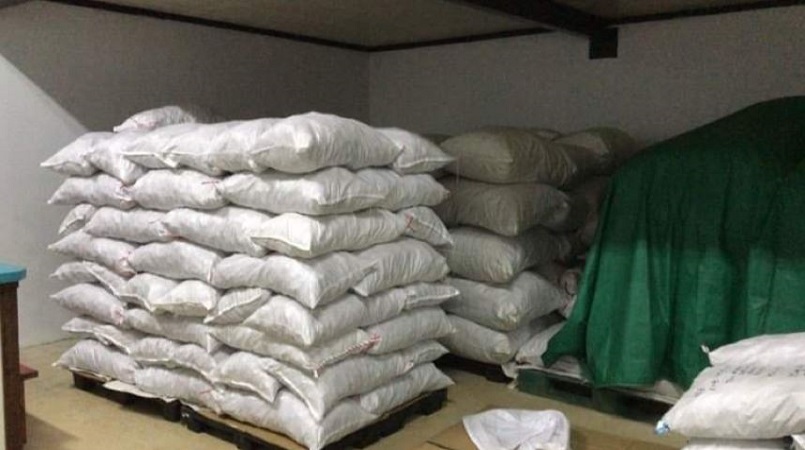
Kava exporters have faced challenges exporting dry kava from Vanuatu during the global coronavirus pandemic.
According to the famers, the closure of borders and high export freight rates have hit export levels.
Kava farmers and exporters have identified issues and are adopting with the situation such as Air Vanuatu regular flights to New Caledonia and Fiji Airways flights to United States via Fiji.
“Sea freight was more popular for kava export as the freight is much cheaper than air freight,” said Michael Louze, a kava exporter and the Chairman of Vanuatu Kava Industry Working Group.
“The COVID-19 crisis has disrupted the growth of Vanuatu kava export market internationally,” Mr Louze said.
“The Vanuatu kava industry is gradually addressing the impact of COVID-19 on Vanuatu kava export and one of the main issues is to develop more markets.”
“Before Tropical Cyclone (TC) Pam in 2015, there was shortage of kava supplies which triggered the high price of kava and after TC Pam, many kava plantations throughout the country were destroyed.”
“Many kava farmers throughout Vanuatu have increase kava production since then because of the high price of domestic and international markets.”
The Department of Agriculture and Rural Development (DARD) through its National Kava Replanting Programme and kava exporters has done a lot awareness to encourage kava farmers to increase production of noble kava varieties to meet market demands.
“Vanuatu kava production is currently very high but given the disasters that Vanuatu is faced with, market growth does not match the increasing production,” Mr Louze said.
“Our priority now is to focus on market development taking into account the various aspects of it, including quantity demand and have bilateral discussions with potential markets to ensure the price of kava remains high and to maintain the markets.
“The price of dried kava fluctuates between VT2,000 to VT 3,000 per kilo depending on the quality of kava.
“Many kava exporters have ceased temporarily to purchase kava because of the high stock of kava.
“Having been in the kava industry for a very long time, I recall in 2002, when dried kava was sold at VT150 to VT200 per kilo. So within 18 years, we have achieved a huge increase in price.
“Many farmers through- out Vanuatu have benefited a lot from this commodity that it empowers farmers to continue increase production.
“When we have increased markets, this implies that there is increased demand. Consequently, we have good price but if we have limited markets, the price will remain low.
“Potential market for Vanuatu kava is huge globally.
“In the future if we are not careful, other countries who do not usually grow kava will start planting kava like the Solomon Islands.
“We need to ensure that Vanuatu produced kava is branded locally and continues to maintain its top quality.
“Ensuring top quality is the responsibility of processors and exporters to make sure all facilities are of high standard.
“If we want our market to grow and Vanuatu’s name to become well- known, we need to supply top quality kava.
“Branding is very important as competition will be high since other countries have started producing more kava as well. So we need to promote Vanuatu original kava and maintain the quality standard as exporter of top quality kava.
“Kava is Vanuatu’s green gold, a commodity whereby local farmers earn a lot of income from.
“Farmers are encouraged to target good quality product to maintain market,” he concluded.
Photo supplied Caption: Dried kava chips bags
